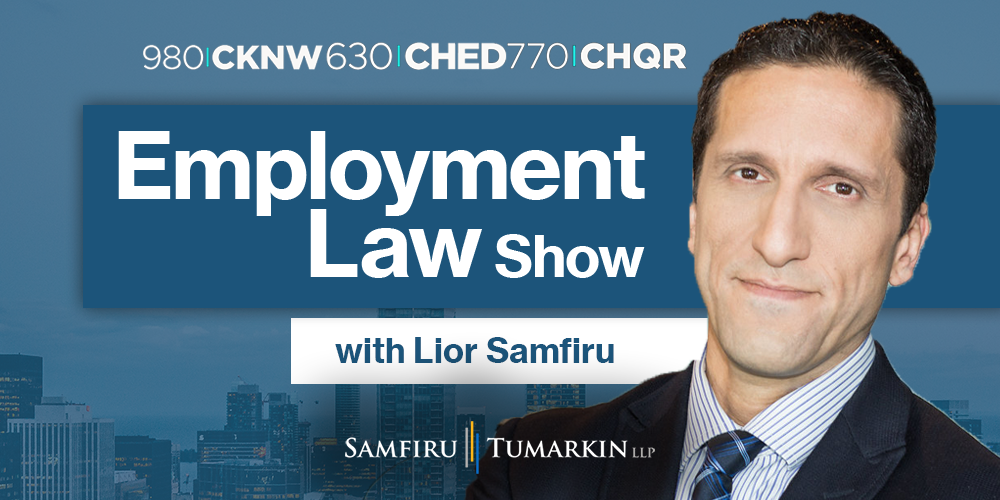The Employment Law Show
Employment Law Show: Alberta & B.C. – S6 E19

Episode Summary
What are you owed if terminated during probation? Employment Lawyer Lior Samfiru, Partner at Samfiru Tumarkin LLP answers this question and more on the Employment Law Show.
LISTEN BELOW to Western Canada’s only radio show about your employment rights in the workplace, every Sunday at 4 p.m. PT on 980 CKNW in Vancouver, and 5 p.m. MT on 770 CHQR in Calgary and 640 CHED in Edmonton, as the show takes calls from listeners and provide vital answers to employees and employers.
Listen to the Episode
Show Notes
- Termination during probation and no severance: Many employees during the first few months of a new position assume that they are on probation when they have not agreed to a probation period at the start of employment. Employees who have not consented to a probation period and are terminated within the first few months of employment are still owed severance pay.
- Signing a new employment agreement: Employment contracts are important documents but most employees do not take into consideration all of the components and terminology included. Employment contracts can contain terms that can limit and restrict an employee’s rights, such as future severance entitlements, the capability to be put on a layoff, etc.
- Updating an employer while on medical leave: Employees should ensure that their employers are aware of their prognosis while on medical leave and if and when they are returning to work. Employees can lose their rights to their job if they simply lose complete contact with their employer. Many employers can consider a complete lack of contact as job abandonment or a resignation.
- Resignation is better than a termination: The record of employment is only relevant to Employment Insurance and employees only receive EI if they have been terminated. It is not advisable for an employee to resign as they lose rights and entitlements.
- Received warnings from employer regarding performance: There is no definite number of warnings an employee has to receive in order to justify a termination for cause. The time period in which warnings are issued matters as well as the context of the disciplinary action. Generally, three incidents or warnings before an employer can consider termination for cause.
Need an employment lawyer?
- Pocket Employment Lawyer: Before you call a lawyer, use the Pocket Employment Lawyer to find out if you might have a case.
- Severance Pay Calculator: Discover how much severance pay you should get when you lose your job, used successfully by nearly 2 million Canadians.
- Watch our TV Shows: Get further clarity on your rights by watching our popular TV show episodes.




